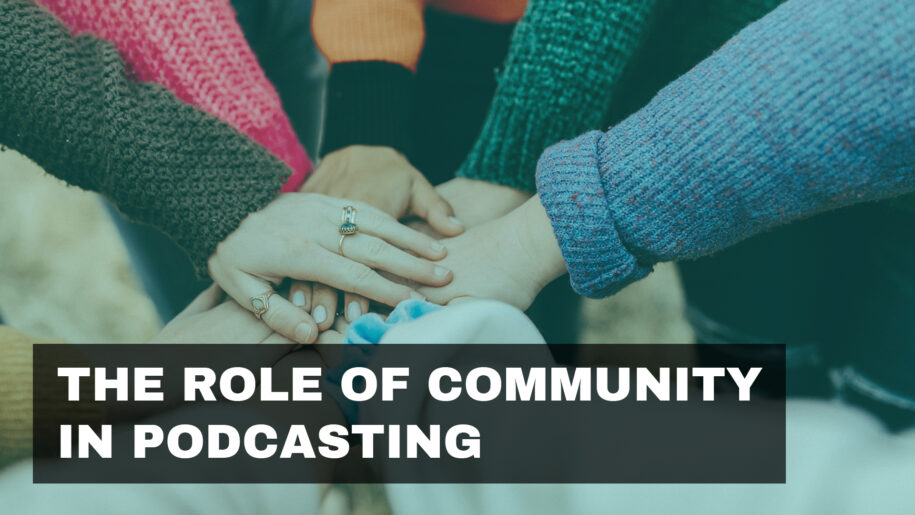Podcasting is not just about creating content; it’s about building a community. A strong podcast community can significantly enhance your show’s success, foster listener loyalty, and create a sense of belonging among your audience. In this blog post, we’ll explore the role of community in podcasting and provide strategies to build and nurture your podcast community.
Why Community Matters in Podcasting
A thriving podcast community offers numerous benefits:
- Enhanced Engagement: Engaged listeners are more likely to become loyal fans and advocates for your podcast.
- Valuable Feedback: Community members provide insights and feedback that can help improve your content.
- Increased Reach: A strong community promotes your podcast organically through word-of-mouth.
- Support Network: A supportive community can offer emotional and practical support, making podcasting more rewarding.
Strategies to Build and Nurture Your Podcast Community
1. Encourage Listener Interaction
What It Is: Creating opportunities for your audience to interact with you and each other.
- Why It Matters: Interaction fosters a sense of connection and makes listeners feel valued.
- Tips: Encourage listeners to leave comments, ask questions, and share their thoughts on your episodes. Use social media, email newsletters, and your podcast website to facilitate interaction.
2. Leverage Social Media
What It Is: Using social media platforms to connect with your audience and promote your podcast.
- Why It Matters: Social media extends your reach and provides a space for community engagement.
- Tips: Create dedicated social media profiles for your podcast. Use platforms like Facebook, Twitter, Instagram, and LinkedIn to share updates, engage with listeners, and host discussions.
3. Host Live Events
What It Is: Organizing live events such as Q&A sessions, live recordings, or virtual meetups.
- Why It Matters: Live events provide a real-time connection with your audience and create memorable experiences.
- Tips: Use platforms like Zoom, YouTube Live, or Instagram Live to host events. Promote these events in advance to ensure good attendance.
4. Create a Dedicated Online Space
What It Is: Establishing a dedicated online community space such as a forum, Facebook Group, or Discord server.
- Why It Matters: A dedicated space encourages ongoing interaction and fosters a sense of belonging.
- Tips: Choose a platform that aligns with your audience’s preferences. Moderate the space to ensure a positive and inclusive environment.
5. Engage with Listener-Generated Content
What It Is: Encouraging and sharing content created by your listeners.
- Why It Matters: Listener-generated content enhances engagement and provides fresh perspectives.
- Tips: Ask listeners to share their stories, create fan art, or submit questions for future episodes. Highlight this content in your episodes and on social media.
6. Offer Exclusive Content
What It Is: Providing special content or perks to your most dedicated listeners.
- Why It Matters: Exclusive content rewards loyalty and incentivizes deeper engagement.
- Tips: Offer bonus episodes, behind-the-scenes content, early access to episodes, or merchandise to subscribers or members.
7. Respond to Feedback
What It Is: Actively listening to and addressing feedback from your audience.
- Why It Matters: Responding to feedback shows that you value your listeners’ opinions and are committed to improving your podcast.
- Tips: Regularly review comments, emails, and social media messages. Mention listener feedback in your episodes and explain how you’re using it to improve.
8. Collaborate with Other Podcasters
What It Is: Partnering with other podcasters to cross-promote and create joint content.
- Why It Matters: Collaborations can introduce your podcast to new audiences and strengthen community ties.
- Tips: Identify podcasters with similar audiences and reach out for guest appearances, co-hosted episodes, or joint promotions.
Real-Life Examples and Lessons
To illustrate the power of community in podcasting, let’s look at some real-life examples:
- Example 1: “The Minimalists” podcast has built a strong community through regular engagement on social media, live events, and a dedicated online forum. This community has helped spread their message and grow their listener base.
- Example 2: “My Favorite Murder” has fostered a loyal fanbase called “Murderinos” through active social media engagement, listener-generated content, and live shows. The sense of community has been a key factor in their podcast’s success.
Building and nurturing a podcast community is essential for long-term success. By encouraging listener interaction, leveraging social media, hosting live events, creating dedicated online spaces, engaging with listener-generated content, offering exclusive content, responding to feedback, and collaborating with other podcasters, you can foster a strong and loyal community around your podcast.
Start implementing these strategies today to enhance your podcast’s engagement, grow your audience, and create a sense of belonging among your listeners.


